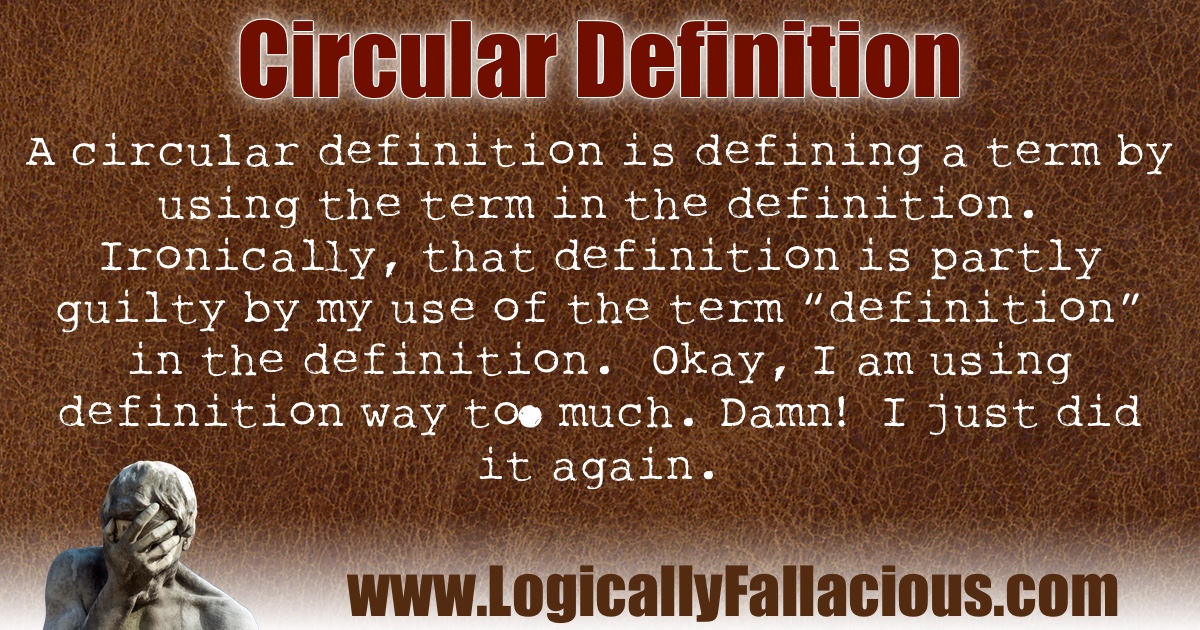Description: A circular definition is defining a term by using the term in the definition. Ironically, that definition is partly guilty by my use of the term “definition” in the definition. Okay, I am using definition way too much. Damn! I just did it again.
Logical Form:
Term 1 is defined by using term 1 in its definition.
Example #1:
Circular definition: a definition that is circular.
Explanation: The definition is not at all helpful because we used the same words in the term to define them.
Example #2:
Flippityflu: smarter than a Floppityflip.
Floppityflip: dumber than a Flippityflu.
Explanation: Here we have two definitions that result in a slightly larger circle, but a circle nonetheless.
Exception: Many definitions are circular, but in the process of defining, there might be enough other information to help us understand the term.
Ethics: moral principles that govern a person's behavior or the conducting of an activity.
Moral Principles: the principles of right and wrong that are accepted by an individual or a social group.
Principles of Right and Wrong: moral principles or one's foundation for ethical behavior.
Tip: Don’t be too quick to call “fallacy” with this one. As demonstrated in the definition, some words in the term can be reused if they are commonly understood.
Nimbus cloud: A cloud that produces precipitation.

References:
Lavery, J., & Hughes, W. (2008). Critical Thinking, fifth edition: An Introduction to the Basic Skills. Broadview Press.
Questions about this fallacy? Ask our community!